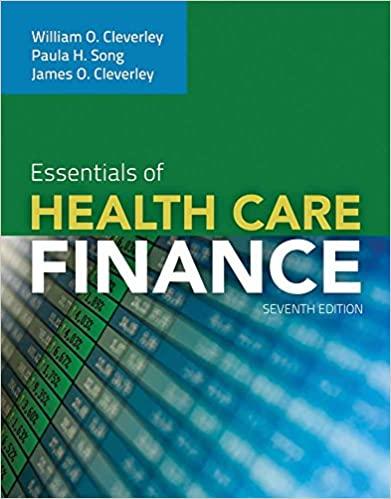Question
WorldCom Corporation began as a small company in the 1980s. Under the direction of DEO and cofounder Bernie Ebbers, it quickly grew to become one
WorldCom Corporation began as a small company in the 1980s. Under the direction of DEO and cofounder Bernie Ebbers, it quickly grew to become one of the largest telecom companies in the world. Ebberss success resulted in his theory that survival in the telecommunications industry would come only through company growth and expansion. Therefore, during the next two decades, WorldCom grew through acquisitions, purchasing more than 60 different firms in the latter half o the 1990s alone. In 1997, WorldCom acquired MCI in a transaction that cost the company roughly $37 billion, and it would have purchased Sprint if it had not been prevented by federal antitrust regulations.
In less than two decades, WorldCom had grown from a small telephone company to a corporate giant, controlling about half of the U.S. Internet traffic and handling at least half of the e-mail traffic throughout the world. The value of WorldCom stock followed the companys growth, eventually reaching more than $60 per share. However, corporate scandal and falsified financial statements, soon led the company down the dreaded spiral until, in 2002, it filed for the largest Chapter 11 Bankruptcy in T.S. history.
In 1998, WorldCom experienced a sudden and unexpected halt in its formerly increasing revenues. WorldComs stock immediately took a hit. As its stock continued to drop, WorldCom became unable to reach Wall Street expectations, and in a desperate effort to maintain investor confidence, the company resorted to dishonesty.
WorldCom had established a large reserve account, which was initially maintained to cover the liabilities of companies it purchased. However, when revenues from operations continued to decrease, the company decided to use these reserve funds to boost its numbers. In total, WorldCom illegally converted $3.8 billion of reserve funds into revenues from operations.
However, these fictitious revenues were not enough to help WorldCom meet its expected level of revenue. So, in December 200, CFO Scott Sullivan ordered accountants at the companys Texas division to reclassify many of the companys expenses. Members of the accounting staff were to reclassify operating expenses (an income statement account) as capital expenses (a long-term asset account). For example, lease expenses and computer expenses would become lease assets and computer assets.
This reclassification of expenses did two things. First, by greatly decreasing operating expenses on its income statement, WorldCom increased its net income. Second, by converting operating expenses into capital assets, the company increased its long-term asset account. The idea was that a huge increase in both retained earnings (from an increase in net income) and assets would inevitably lead to an increase in the value of WorldCom and its stock. Overall, nearly $3.85 billion of operating expenses were misclassified as capital assets.
Other fraudulent activity dug the companys fraud deeper and deeper until the schemes were eventually detected and investigated by the companys own internal audit department and the SEC. In the end, it was discovered that more than $111 billion had been defrauded from a company that was soon forced to file the largest Chapter 1 bankruptcy ever recorded. As a result of the fraud, thousands of employees lost not only their jobs, but also their entire retirement savings. The fraud cost investors billions of dollars as the company quickly went from a multibillion-dollar franchise to bankruptcy. Several company executives were indicted on counts of conspiracy and security fraud. The main perpetrator, Scott Sullivan (CFO), received a sentence require him to pay as much as $25 million in fines and serve up to 65 years in prison. Other executives received similar sentences. In essence, the WorldCom fraud left those involved in the company with nearly nothing. It proved a prominent example of the age-old adage cheaters never prosper.
- Suppose you were one of the companys accountants and had been one of those instructed by the CFO Scott Sullivan to reclassify the operating expenses as capital expenses. You fear that if you do not comply, you will lose your job.
- What would you do?
- Be honest and provide an explanation of why, so I can gather understanding of your thought process please.
- What type of financial statement analysis might expose this scheme? Why?
- Even though you are not physically stealing money, financial statement fraud is commonly considered one of the most expensive types. Why is this true?
Step by Step Solution
There are 3 Steps involved in it
Step: 1

Get Instant Access to Expert-Tailored Solutions
See step-by-step solutions with expert insights and AI powered tools for academic success
Step: 2

Step: 3

Ace Your Homework with AI
Get the answers you need in no time with our AI-driven, step-by-step assistance
Get Started


